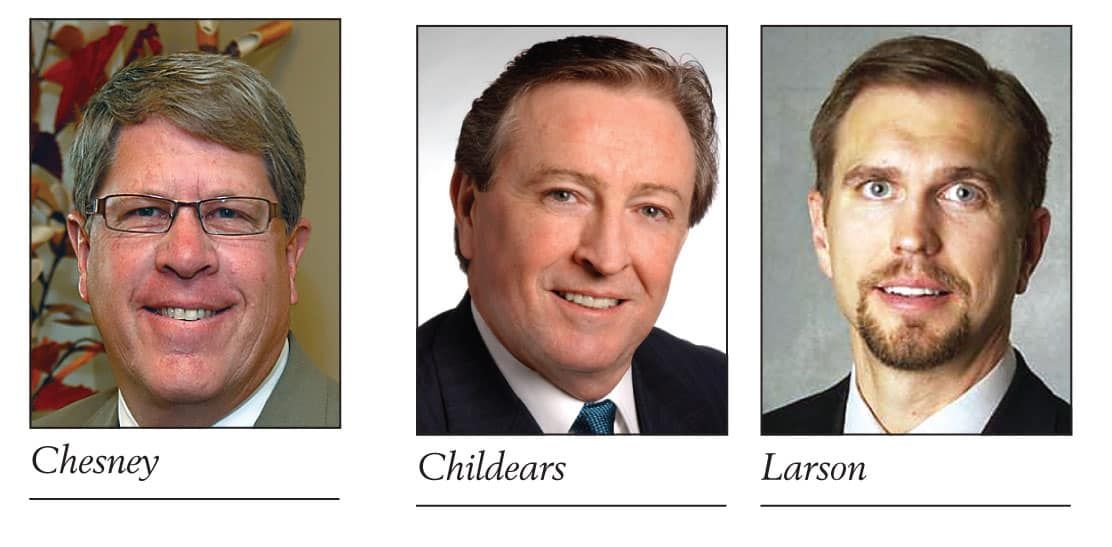Some area bankers wary of Swiss talks’ outcome

 BOULDER — A global banking standard being decided halfway around the world could have a big impact on how much money is loaned to local companies and individuals in 2013, several bankers said.
BOULDER — A global banking standard being decided halfway around the world could have a big impact on how much money is loaned to local companies and individuals in 2013, several bankers said.
The Basel III Accord would require banks to hold 4.5 percent of their equity, among other things.
The Basel III rules and others — including the domestic Dodd-Frank Act on banks passed in 2010 — could cost banks as much as an additional 4 percent to deal with compliance issues, according to Tom Chesney, president of AMG National Trust Bank’s commercial banking division, based in the Boulder office. Chesney based his estimate on a bank with 100 employees needing three or four compliance officers to deal with new regulations.
SPONSORED CONTENT
How Platte River Power Authority is accelerating its energy transition
Platte River Power Authority, the community-owned wholesale electricity provider for Northern Colorado, has a history of bold initiatives.
“Basel III has the potential to affect us,” Chesney said. Compliance requirements “are an added expense and consume a lot of resources.”
AMG and other banks with less than $10 billion in assets have joined together with others in the industry to lobby to be exempt from potential new Basel III regulations. Most community banks exceed the proposed new capital standards anyway, but it still costs them money to show that they comply, Chesney said.
Basel III is so-named because global banking supervision committee regulator talks are being held in Basel, Switzerland. The new standards were supposed to go into effect at banks around the globe on Jan. 1 but now have been pushed back to 2015.
The new regulations are being developed to respond to regulation problems that were revealed in a financial crisis in the United States that started in 2008 related to mortgage loans.
Such new regulations could slow annual gross domestic product growth for various nations by as much as 0.15 percent, according to estimates from the Organization for Economic Cooperation and Development, a European development group.
Requiring banks to hold more capital than they currently do can cause “really bad consequences,” said Don Childears, president and chief executive officer of the Colorado Bankers Association, a member lobbying group.
In advance of potential new regulations, U.S. banks already are holding capital at a historic high rate of more than 16 percent, Childears said. He did not say how much capital he thought banks should be required to hold to cover bad loans, since various banks use various risk-analysis metrics to decide how much money to loan and how much to hold in reserve.
“It’s not quite as simple as just naming a number. But everything (Basel III Committee regulators are) talking about is just excessive,” Childears said.
Childears said he worried specifically about how Basel III rules might affect commercial and residential real estate lending in Colorado. Possible new rules could require banks to hold double the amount of capital they had for such loans over what they had to hold in the past, he said.
Real estate lending will not change at FirstBank’s Boulder branches, said Brian Larson, president of the Boulder arm of FirstBank Holding Co., the parent company in Lakewood.
FirstBank will continue “business as usual” in 2013, including its busy mortgage lending practice, Larson said. Community banks in the United States should not have to follow rules of big international banks, Larson said.
Flatirons Bank President Kyle Heckman said he felt the same way.
“It’s a proposed one-size-fits-all solution to an industry with diverse bank types,” Heckman said.
Many different industry groups are lobbying to keep the potential new regulations from going into effect, said Tennyson Grebenar, a bank analyst and lawyer at Rothgerber, Johnson & Lyons LLC in Denver.
“There may be some negative effects on liquidity at community banks, but there’s a real effort to get it rolled back or changed so that some of these consequences that are supposedly unintended consequences don’t negatively affect community banks,” Grebenar said.
 BOULDER — A global banking standard being decided halfway around the world could have a big impact on how much money is loaned to local companies and individuals in 2013, several bankers said.
BOULDER — A global banking standard being decided halfway around the world could have a big impact on how much money is loaned to local companies and individuals in 2013, several bankers said.
The Basel III Accord would require banks to hold 4.5 percent of their equity, among other things.
The Basel III rules and others — including the domestic Dodd-Frank Act on banks passed in 2010 — could cost banks as much as an additional 4 percent to deal with compliance issues, according to Tom Chesney, president of AMG National Trust Bank’s commercial…
THIS ARTICLE IS FOR SUBSCRIBERS ONLY
Continue reading for less than $3 per week!
Get a month of award-winning local business news, trends and insights
Access award-winning content today!

